Benchmarks: CrystalDiskMark 3.0
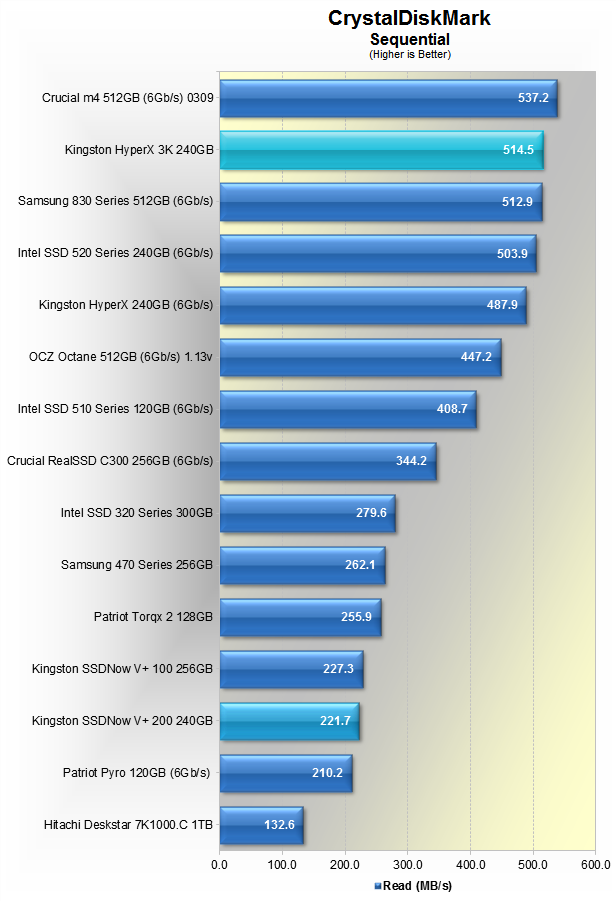
The HyperX 3K achieved 514.5MB/s in CrystalDiskMark's sequential read test, more than twice as fast as the SSDNow V+200's 221.7MB/s. Interestingly, the SSDNow V+200 was slightly slower than the SSDNow V+100 in this test.
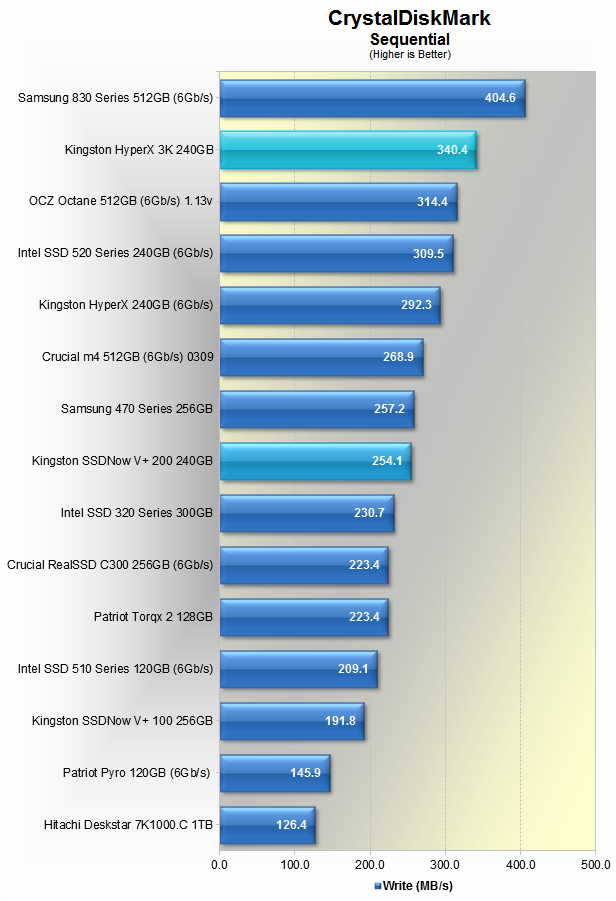
Kingston's HyperX 3K continued its solid showing when testing sequential writes. With a throughput of 340MB/s, it was faster than the 520 Series and the original HyperX. Meanwhile, the SSDNow V+200 picked up its slack and managed to outpace the SSDNow V+100.
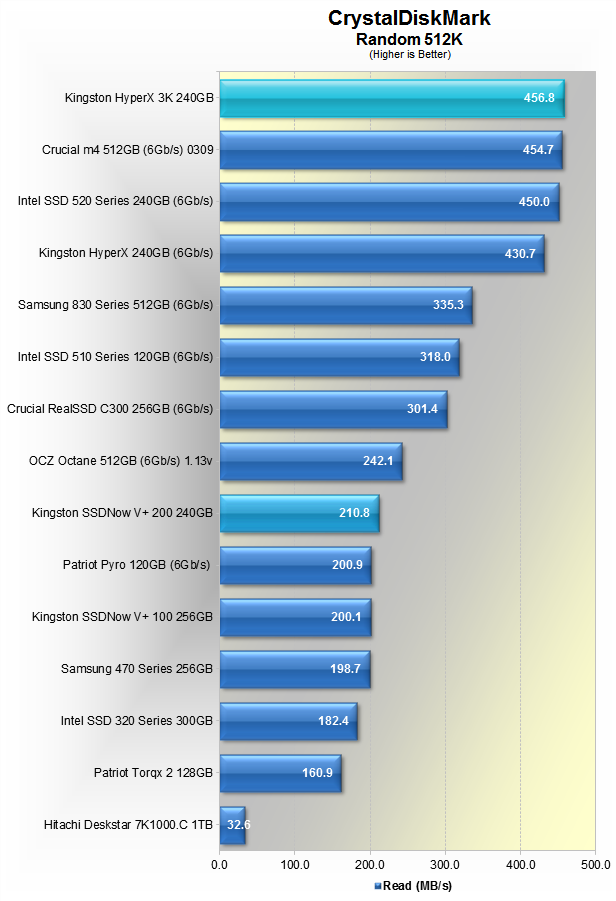
The HyperX 3K delivered a throughput of 456.8MB/s in the random 512K read test, allowing it to keep an edge on Intel's drive. The SSDNow V+200 struggled with a throughput of just 210.8MB/s, slightly faster than the older SSDNow V+100.
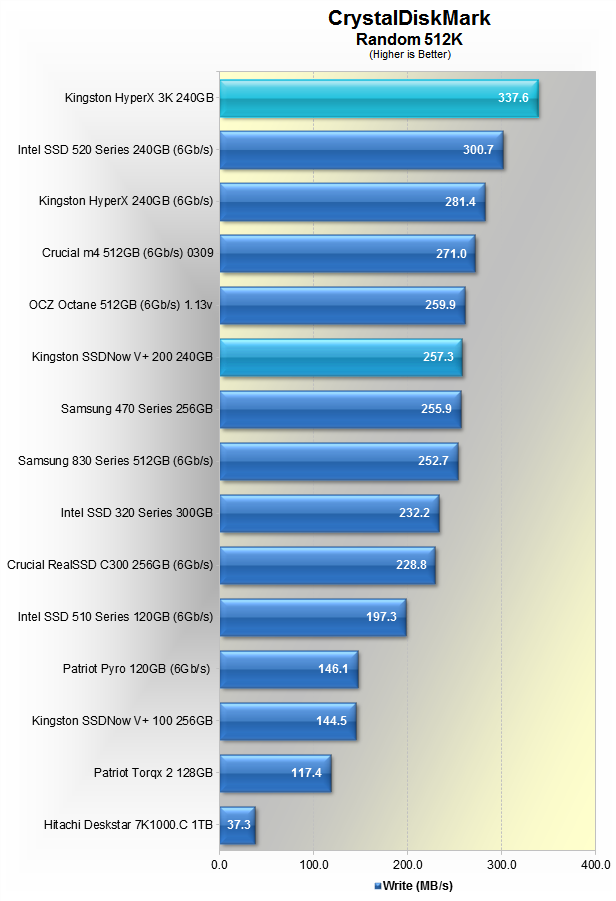
With an impressive 337.6MB/s, the HyperX 3K topped our random 512K write chart, outpacing the standard HyperX by 20%. The SSDNow V+200 wasn't nearly as fast at 257.3MB/s, but still managed to separate itself from the SSDNow V+100 by a considerable margin.
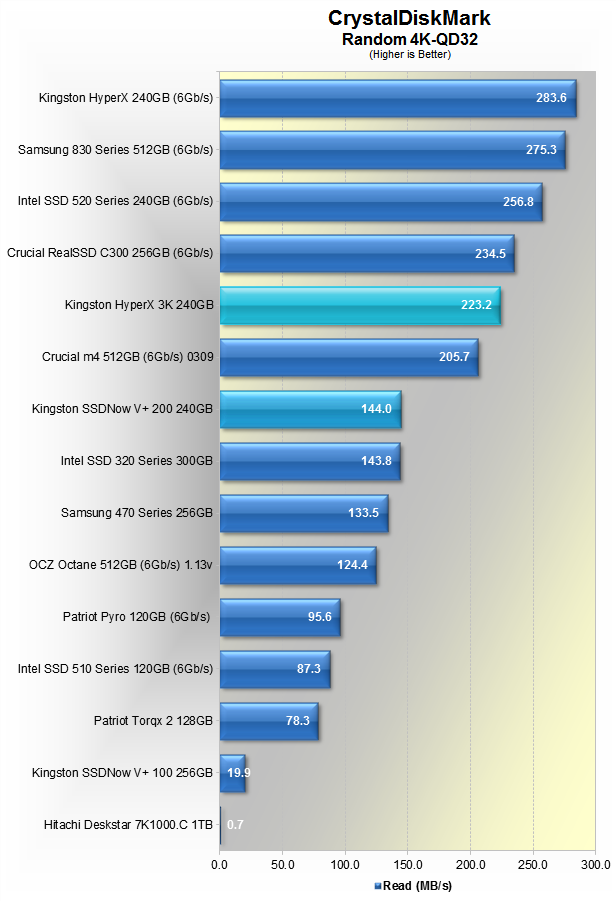
Kingston's HyperX 3K slipped up in the random 4K-QD32 test, managing just 223.2MB/s – well behind the original HyperX and 520 Series. Although the SSDNow V+200 was still much slower, it performed well compared to the Patriot Pyro and SSDNow V+100.
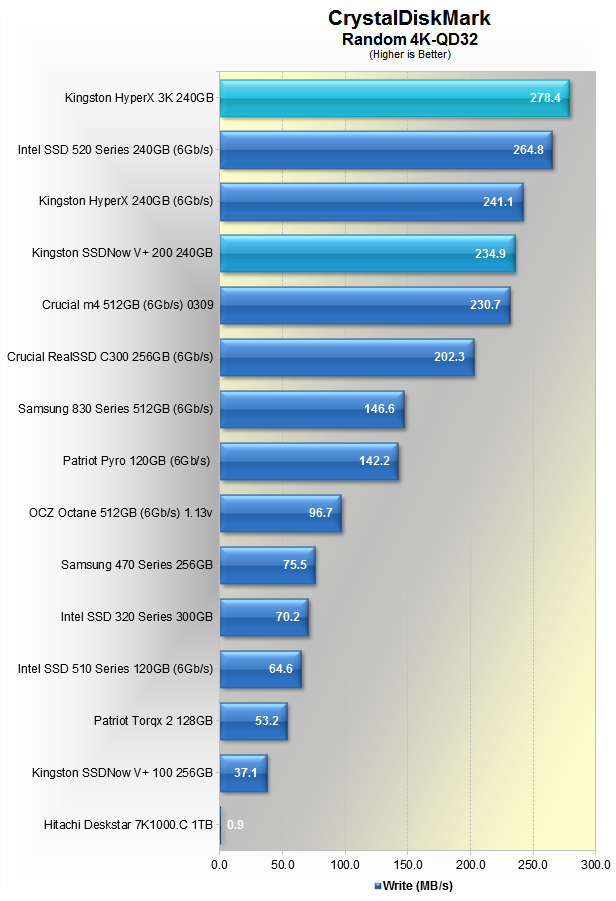
The HyperX 3K regained its balance when measuring random 4K-QD32 write performance, beating all other second-generation SandForce drives. The SSDNow V+200 240GB also performed well, as it was hot on the heels of the standard HyperX.
